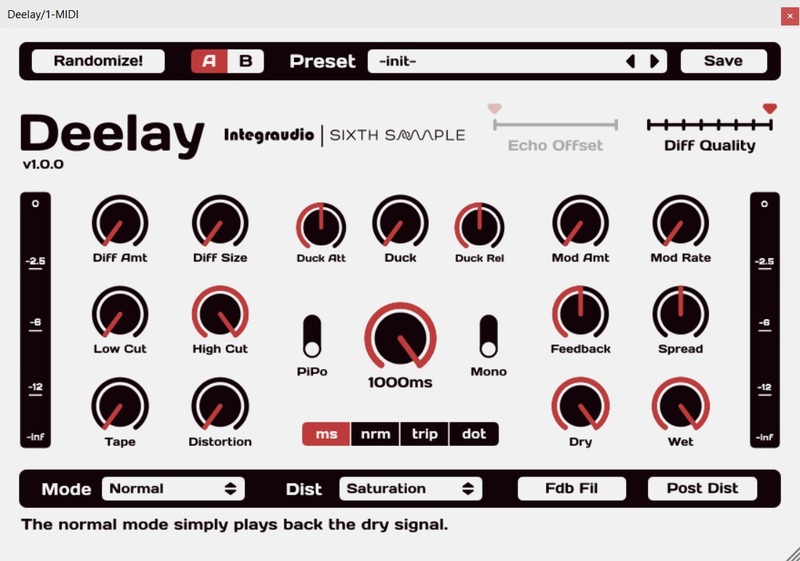Developed in collaboration with Sixth Sample, Integraudio's Deelay is a free delay plugin with a plethora of features geared for modern producers.
The delay effect is bread-and-butter for any music producer. Practically every DAW comes with a delay plugin, and usually, you can get by with them without issue. However, once in a while you might face a need to use something geared towards sound designing - and the all-new Deelay is completely free and allows you to achieve a variety of sounds.
Deelay provides five modes of operation and distortion stage with many types. Similarly, you can find various parameters that you rarely see in free and paid plugins. These allow you to customize the way the delay behaves. Furthermore, it features a vast array of presets laid out over multiple categories to help you discover what Deelay can do.
Features
While many free delay plugins tend to be either too simple or too complicated, Deelay finds a rather good balance. It provides many features that would require you to use multiple plugins with track routings. Similarly, it includes classic features like ping-pong mode, mono switch, millisecond mode, and sync mode with triplet and dotted timing. So, it saves time and effort while you explore experimental features.
Diffusion
Diffusion smears Deelay’s echoes to make the effect sound like a reverb. You can add a small amount of diffusion to make the delay sound less distinct. Furthermore, the plugin allows you to change the diffusion amount, size, and quality. The diffusion quality slider changes how smeared and smooth the diffusion sounds.
Modes
Deelay provides five modes of delay: normal, reverse forward, pure reversed, chaos, and reversed chaos. The ‘reverse forward’ mode reverses the delay sound before it is fed back into the delay for the feedback system. So, it produces a reversed echo every other time. Conversely, the ‘pure reversed’ mode reverses all the echoes.
The ’chaos’ mode changes each echo’s pitch interval. One of the coolest uses I’ve found for it is to change a voice into a strange, “evil” character. Furthermore, if you need even more experimental sounds, try the reversed chaos mode. As the plugin suggests, it sounds excellent with diffusion. The result is similar to a shimmer reverb.
Distortion
The plugin provides eleven types of distortions, which applies to the delay wet. These include saturation, asymmetrical, clip, tube, rectify, crackly, lightning, amp, bumpy, razor, and pixelated. As you probably expect, most of them do what the name states. For example, the tube distortion emulates classic tube amps, and the amp distortion emulates Class A amp saturation.
However, the other distortion types do not emulate traditional distortion effects. For example, ‘crackly’ emulates jittery wires and ‘pixelated’ adds a noisy lo-fi effect at a low bit depth. Similarly, the ‘lightning’ type adds harsh distortion alongside a white noise. Further, the other types like bumpy and razor sound like they prioritize different frequency ranges.
Tape
Deelay offers a Tape knob at the bottom right of the user interface. This parameter adds the wow and flutter of a tape recorder. Furthermore, while the plugin itself doesn’t mention it, I find the wow effect similar to a 30ips mastering tape, although the flutters can be pretty overpowering. So, try dialling in the tape parameter without going overboard to achieve a fairly convincing tape effect. You could even use a 0ms delay, some Tape, and mild Pixelated distortion to use Deelay as a tape emulator!
Ducking
The top parameter in the middle of the user interface is Duck. It essentially lowers the volume of the wet signal whenever the dry signal plays. So, it’s excellent to avoid muddying your dry signal. Furthermore, Deelay allows you to customize the duck attack and release timing.
Sound
As a delay effect alone, Deelay is perfectly transparent and provides all the features you might need. However, it adds a filter section alongside distortion that changes the feedback sound. You’ll find a high-pass and a low-pass filter that sound like they have a 12 dB/octave slope. And you can assign them to the sidechain input or the feedback output.
Similarly, the various types of distortion are very usable. Many of them are too experimental to be called upon often, but they may come in handy while you’re sound designing. Furthermore, while I don’t find the emulations particularly convincing, I found them helpful for adding classic techniques like distorted slap-back delays.
System Requirements
Mac
- macOS 10 or higher
- 64-bit only
- VST3 & AU
Windows
- Windows 10 or higher
- 64-bit only
- VST3
Mac
1. Download the .pkg installer from your Plugin Boutique account > Open the file (you may click 'Open Anyway' in your Security & Privacy settings since this plugin is made by a third-party developer).
2. Click 'Continue'.
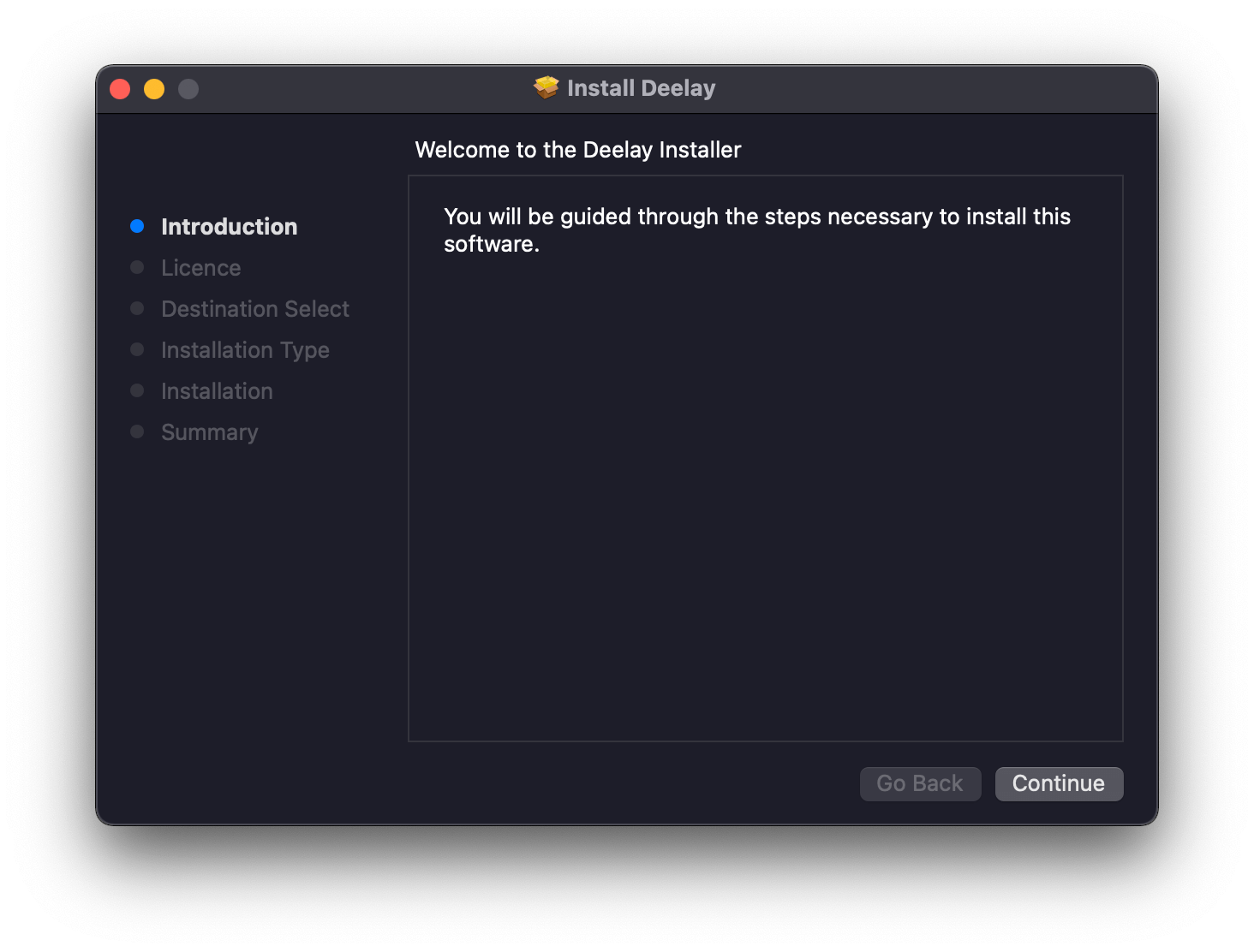
3. Read the Software License Agreement > Click 'Continue'.
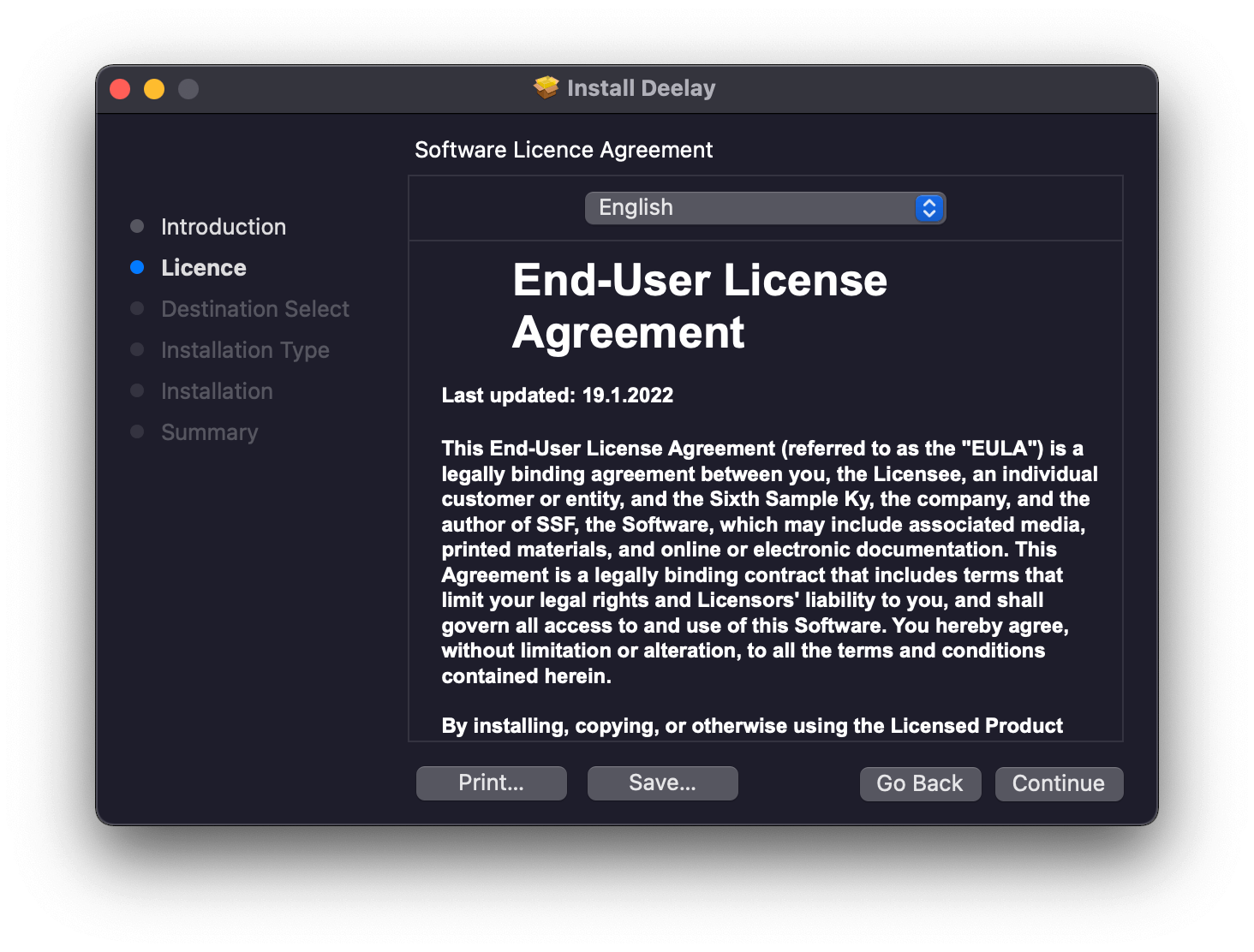
4. Click 'Agree' to confirm.
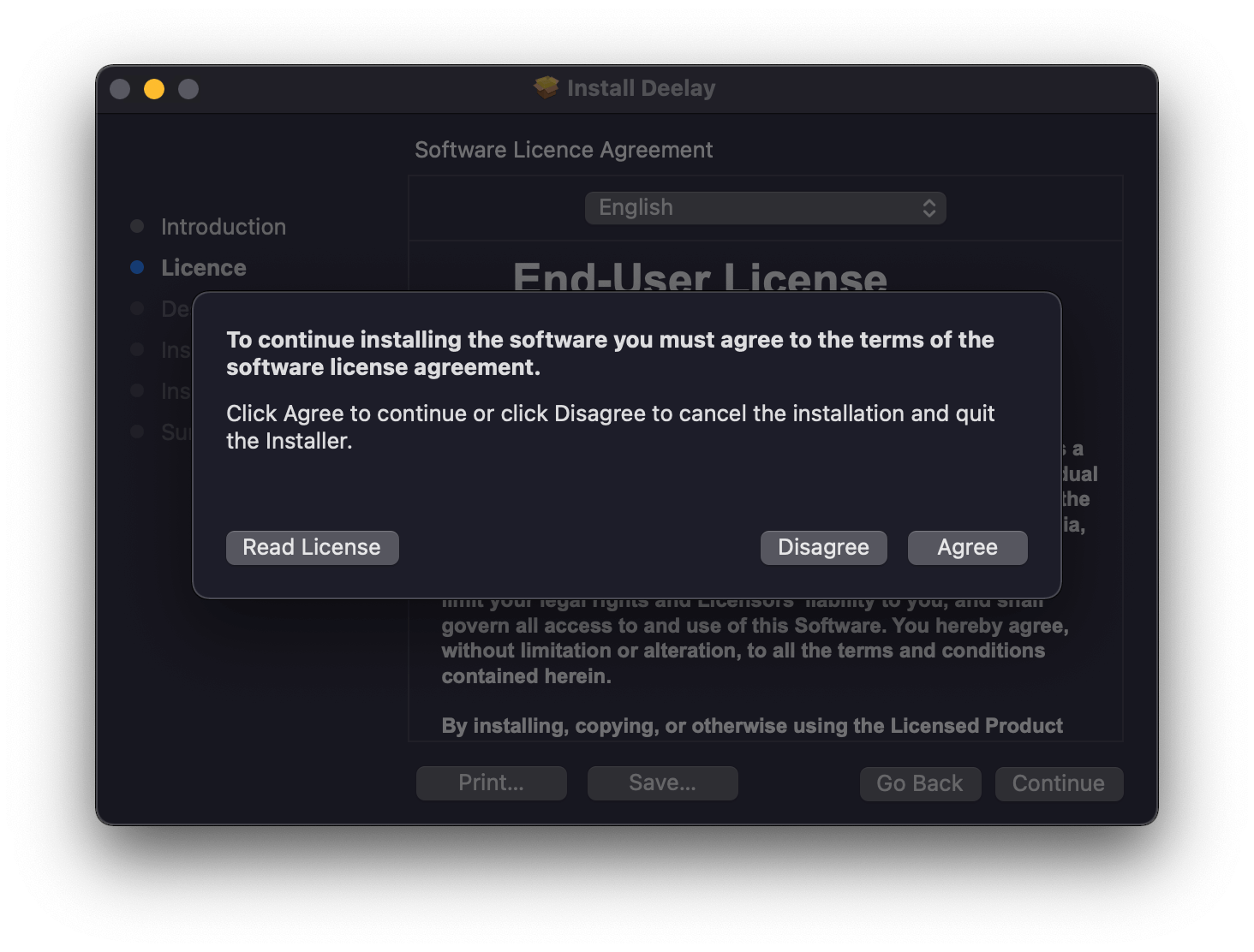
5. Click 'Install' > Enter your password if necessary.
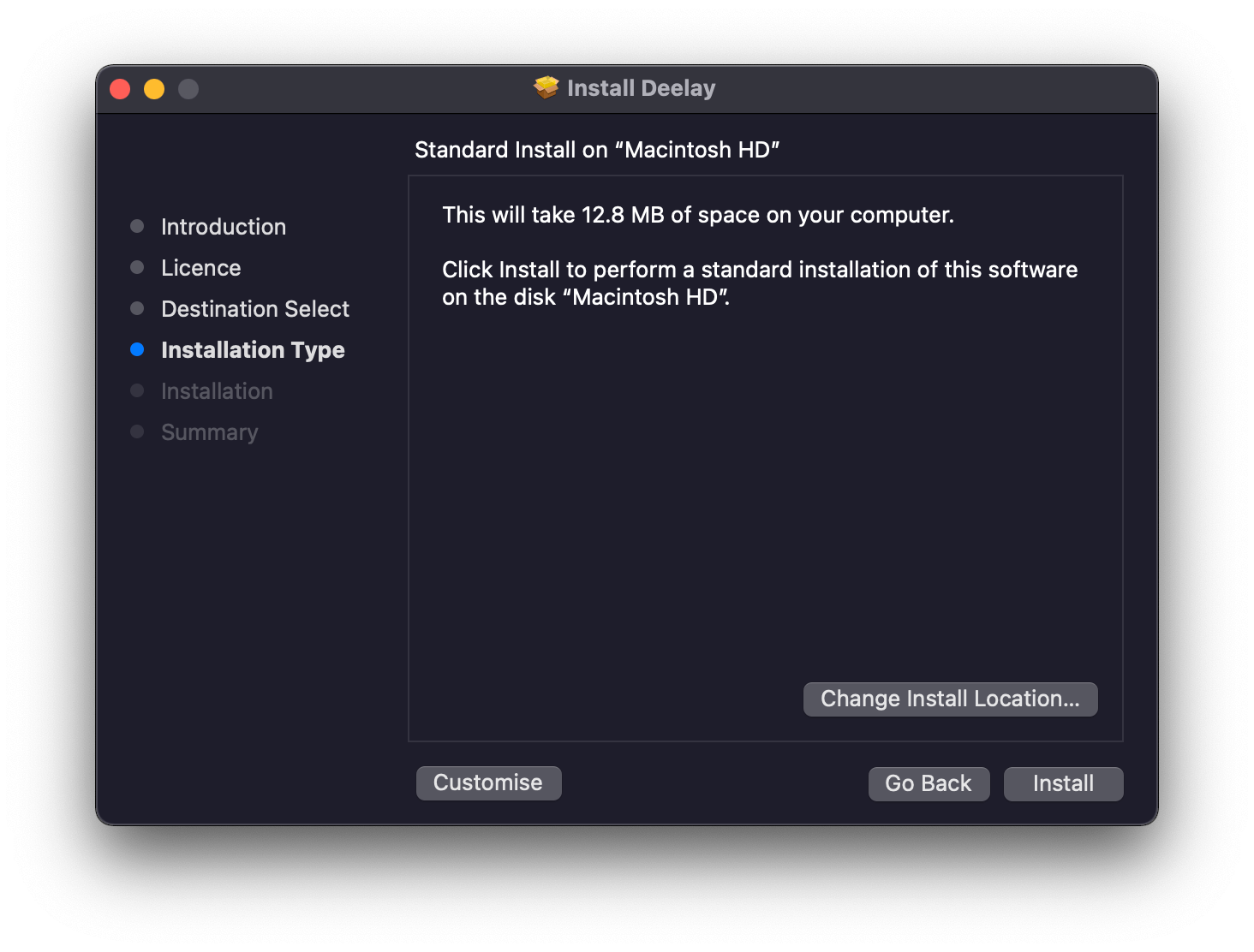
6. Deelay is now installed > Click 'Close'.
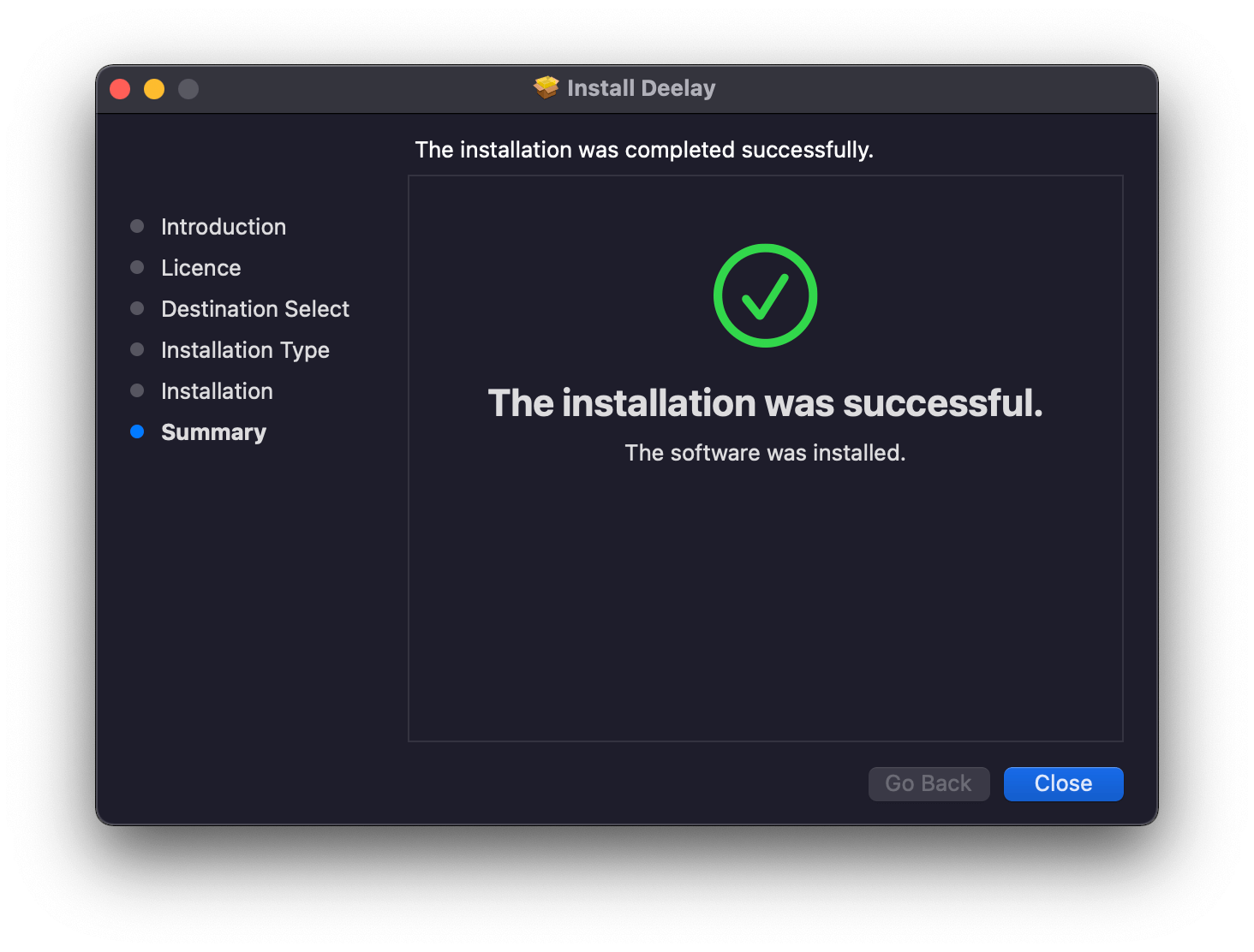
7. Open Deelay in your DAW.
Please note: it may be listed under Sixth Sample.
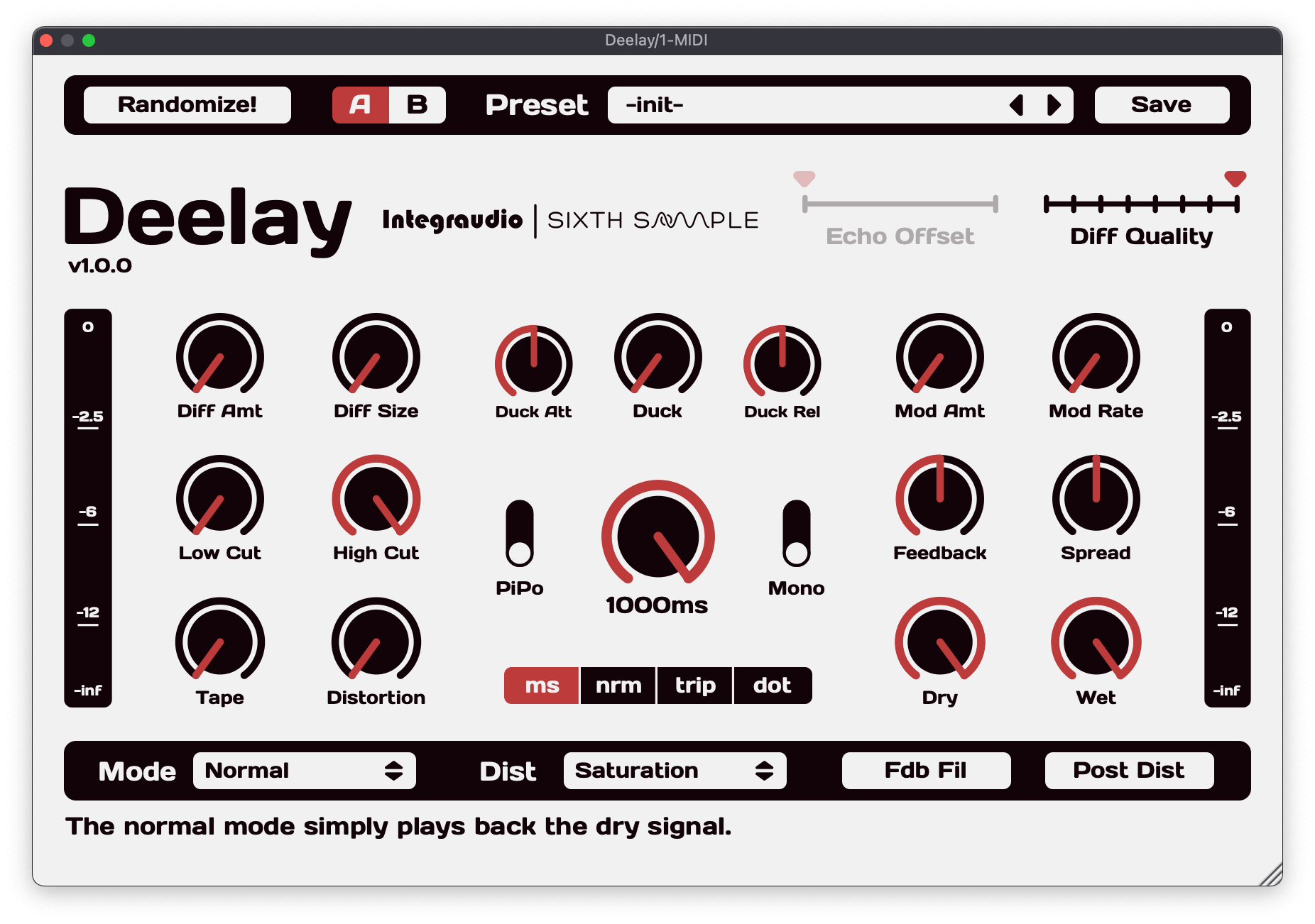
Windows
1. Download the .zip folder from your Plugin Boutique account > Run the appropriate installer > Click 'Next'.
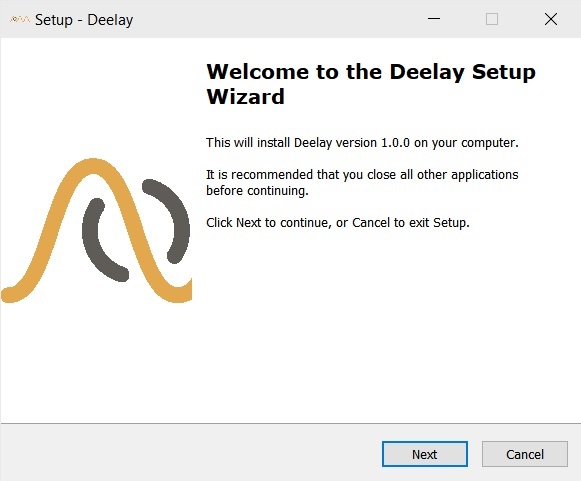
2. Read the License Agreement > Select 'I accept the agreement' > Click 'Next'.
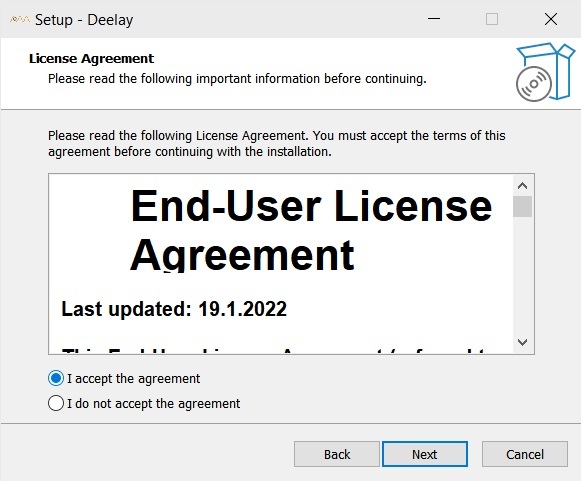
3. Click 'Install'.
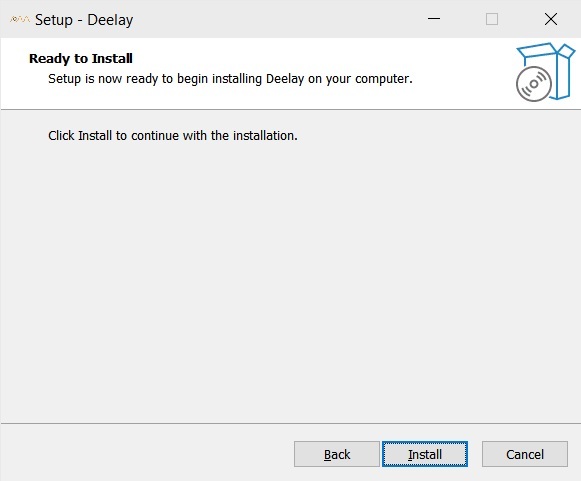
4. Deelay is now installed > Click 'Finish'.
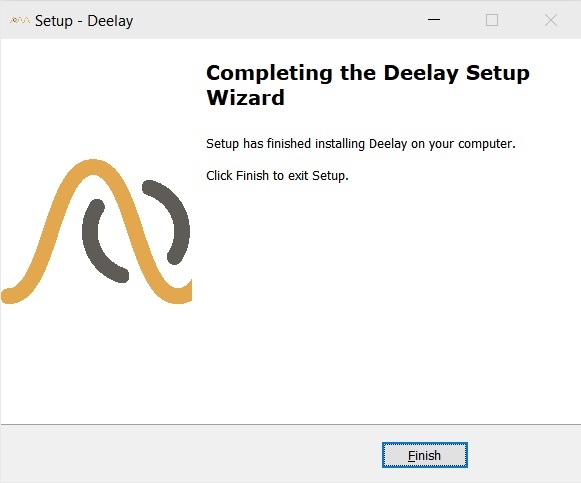
5. Open Deelay in your DAW.
Please note: it may be listed under Sixth Sample.
